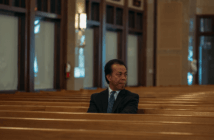Have you known a church member who seemed fully engaged and invested in a congregation but suddenly walked away? What makes someone “flame out” unexpectedly? How do people find themselves in so far over their heads that they opt out all together? It’s important for leaders to recognize an all-too-common pattern of engagement that leads to burnout.
People become active in church ministries for a variety of reasons. They may feel that God is calling them to some form of ministry or find themselves inspired to do more. But often, they do not have a clear sense of their gifts and calling. So they begin taking on responsibilities without prayerful discernment. They get busy doing everything. They fill up their calendars with tasks and responsibilities that may or may not be in sync with their divine calling. They are excited about “working for God” and throw themselves into every task. Because they are committed and enthusiastic, more and more requests are made of their time.
Before long, they become burdened. They become overwhelmed by ministry responsibilities and start to resent them. While they still feel the desire to “work for God,” it becomes an obligation rather than a privilege. They start to grumble, but not too loudly, about all the things they have to do and the amount of time it is taking.
As burnout sets in, they begin to question why others aren’t as committed as they are. Intentionally or unintentionally they start letting things slide and sometimes even sabotage the ministries under their care. They want to prove how valuable they are and how things would fall apart without them. Even if they maintain their ministry tasks, they are absent from worship and other spiritual formation activities. Their spiritual identity is based solely upon their responsibilities and no longer in their relationship with Christ.
It’s at this point that people flame out. In a moment of a frustration, exhaustion, or disappointment, they can easily decide to walk away from all of their ministry responsibilities.
What can we do to break the cycle of lay ministry burnout?
- Help church members discover their strengths, their gifts, and their divine calling. Sue Nilson Kibbey, in her book Ultimately Responsible, discusses the importance of helping people live, work, and do ministry utilizing their strengths. You do not burn out doing what you love, only what you loathe. The first step to avoiding the cycle of ministry failure is to help people prayerfully discern their gifts, strengths, and divine calling.
- Encourage people to ask for help. So often pastors and paid staff do not pay enough attention if no one is complaining too loudly and the tasks are getting done. We really need to know if people are happy or not. Leaders can create an environment where it is safe to ask for help. A leader is “ultimately responsible,” as Kibbey writes, for providing assistance, keeping people from getting overloaded with too many jobs, or helping them transition to a new role.
- Put time limits on the length of expected service. The “elected until death” expectation common in so many churches is a sure recipe for lay ministry burnout. Create a leadership covenant that allows lay leaders to opt in or opt out annually or at least every two years. While it can be frustrating to see effective people decide to take a breather, it’s much better than having them burn out later. Caring for those you expect to care for others is an important pastoral responsibility.
As leaders, paid and unpaid, we must do a better job of keeping disciples invested and engaged in our communities. We need to stop seeing church members as “commodities” needed to get ministry tasks accomplished and learn to recognize and confront the factors that lead to burnout before it is too late.







